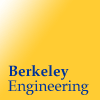
|

|
|
 |
||||||||||||||||||||||||||||||||||||||||||||
| Dr. Michele de Coteau | ||
|
Dr. de Coteau also loved school. During the summers, while her friends goofed off or got summer jobs, she opted to study. She joined the UC Berkeley Professional Development summer school program and spent two summers on the Berkeley campus taking science-related classes. Dr. de Coteau also attended a summer school program in upstate New York where she was introduced to engineering and first became interested in Material Science Engineering. "The program focused on introducing minorities and women to engineering. I did it because it was a free trip to New York," she laughs. As an MSE student at Berkeley, Dr. de Coteau participated in the Multicultural Engineering Program (MEP) that she now directs. MEP concentrates on recruiting and graduating a diverse pool of engineers and helps retain underrepresented students. Dr. de Coteau remembers that the MEP director at the time was an important resource for her in both getting into and getting through Berkeley: "He was my biggest cheerleader, and that makes a difference in a place like Berkeley. I always wondered why he was so excited that I was here and now that I'm in the job I understand. The excitement of this job is watching students develop, evolve and achieve," she says. It was the guidance of a group of black professors and administrators on campus that prompted Dr. de Coteau to apply and receive the prestigious Rhodes Scholarship. In 1988, she became the first American woman from Berkeley to win the scholarship, and the first Berkeley student to get it in 25 years. At Oxford, not only did she get her Ph.D. in MSE, but she realized how much she missed Berkeley. Dr. de Coteau always dreamed of becoming a college professor. Her role model was Shirley Jackson, the first black woman to get her Ph.D. from MIT in physics. She came back home to teach MSE at Laney College and started working part time for Berkeley's tutorial program in engineering, math and science. She was encouraged to apply for the MEP position six years ago, and the rest is history. In addition to her credentials, she brings an invaluable insight to her position. "I can relate to the students because I still remember what it was like to be an undergrad and engineer here," she says. "I understand what they go through and help validate their experience. I tell them, when you graduate as a Berkeley engineer, you can face anything the world throws at you."
|
||
|
CUES is supported by the National Science Foundation, our partners in industry, and foundation grants, as well as the UC Berkeley campus and the College of Engineering.
